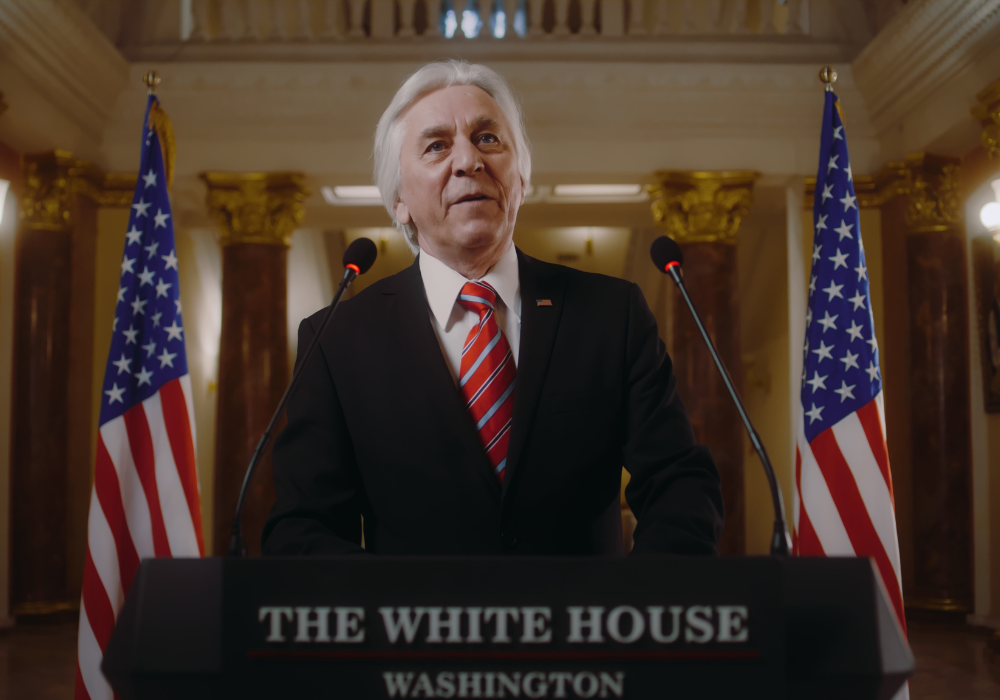These careers were once admired, but now people thumb their noses at them.

You might not think twice about some jobs today, but they used to be the gold standard of respect and admiration. There was a time when entire communities would look up to people in these professions, inviting them to dinner, quoting their opinions, and trusting them with society’s future. These roles shaped culture, families, and values in deep ways, anchoring the hopes and dreams of countless individuals.
But over time, shifting priorities, public disillusionment, and societal upheaval chipped away at the prestige these careers once carried. Some fell victim to scandal, others to technology, and many to the grind of bureaucracy. Whatever the reason, these professions that once symbolized success, character, and service are now often met with indifference—or worse, contempt.
1. Teaching was once revered, but now it’s a thankless job.

Teaching used to be the dream job of those who wanted to make a real difference. Teachers were admired not just for their knowledge, but for their compassion, patience, and commitment to shaping the next generation. They were often the most educated people in their communities, held in high esteem by parents and local leaders alike. Becoming a teacher was a calling, not just a job, as mentioned in Bored Panda.
Fast forward to today, and that sense of honor has eroded. Teachers now face overcrowded classrooms, dismal pay, outdated materials, and a flood of administrative demands that strip them of creativity and freedom. Add to that the increasing lack of support from both parents and policymakers, and it’s clear why burnout is rampant. The profession hasn’t lost its importance—but sadly, it’s lost much of the respect it once commanded.
2. Journalism went from truth-telling to “fake news.”

Journalism was once the beacon of democracy. Reporters were fearless seekers of truth, uncovering corruption and shedding light on injustice. Names like Woodward and Bernstein inspired generations to believe in the power of the press. Newspapers and nightly news programs held a special place in households, and journalists were entrusted to tell it like it is, without fear or favor.
Now, the profession struggles under the weight of polarization, clickbait headlines, and public distrust. The rise of partisan media and social media echo chambers has blurred the lines between opinion and fact. Many people now believe journalists are agenda-driven rather than truth-driven, Hristina Dimova at Medium.com reported. While credible reporters still exist, their voices are often drowned out by sensationalism. It’s a far cry from the journalistic glory days.
3. Lawyers were admired for justice, but now they’re called greedy.

There was a time when lawyers were seen as champions of the underdog. They fought for civil rights, defended the wrongly accused, and were perceived as essential to a fair and just society. Courtrooms carried a sense of dignity, and attorneys were the intellectual warriors ensuring laws served the people.
Today, public perception has shifted sharply. Pop culture portrays lawyers as slick opportunists chasing billable hours, and scandalous cases reinforce the stereotype of greed over justice, as stated in 93.3 WFLS. While many lawyers still work tirelessly to help clients in need, the noble image has been eclipsed by cynicism. The essential work of advocacy, negotiation, and protection is still there—but the admiration has largely disappeared.
4. Politicians were once respected leaders, now they’re public enemies.

Decades ago, being elected to public office was one of the highest honors a citizen could receive. Politicians were expected to embody service, responsibility, and a deep care for the people they represented. Great speeches, bold ideas, and public service drew admiration from voters regardless of political affiliation.
Now, trust in government is at historic lows. Scandals, corruption, and unrelenting partisanship have transformed politicians into symbols of dysfunction and self-interest. Many are seen as detached elites more interested in donors and headlines than helping constituents. While some still enter politics to do good, the institution itself is stained, and respect has turned into rolling eyes and apathy.
5. Flight attendants were glamorized, but now they face endless complaints.

Once upon a time, becoming a flight attendant was the epitome of sophistication and charm. The uniforms, the travel perks, and the aura of international jet-setting made the role highly desirable. They weren’t just service workers—they were ambassadors of the skies, trained for elegance and safety alike.
Today, their jobs are far less glamorous and far more grueling. They’re tasked with managing irritable passengers, navigating turbulent schedules, and de-escalating mid-air confrontations—all while being undervalued. Many travelers treat them more like waitstaff than trained safety professionals. What used to be a career full of excitement is now marked by stress, scrutiny, and far too little appreciation.
6. Doctors went from heroes to overworked and undervalued.

Doctors used to be among the most respected professionals in the world. Families proudly displayed diplomas on walls, and children were encouraged to become doctors when they grew up. The white coat symbolized intelligence, integrity, and deep commitment to others’ well-being.
While the skill and sacrifice remain, the prestige has faded. Insurance bureaucracy, endless documentation, and constant second-guessing by patients emboldened by internet searches have taken a toll. The COVID-19 pandemic revealed their heroism—but also their breaking points. Burnout, lawsuits, and skepticism have made it hard to maintain the reverence once given freely.
7. Farmers were once the backbone of society, now they’re overlooked.

Farming was once synonymous with integrity, independence, and perseverance. Communities rallied around their farmers, who were celebrated for feeding the nation and embodying rural strength. They were seen as wise stewards of the land, grounded in tradition and vital to economic survival.
Today, the story has shifted. Corporate agriculture, financial instability, and environmental pressures have made farming both harder and less appreciated. Many people no longer understand where their food comes from, let alone the sacrifices made to produce it. Farmers continue to work with grit and pride, but they do so largely in the shadows of society’s attention.
8. Librarians were once gatekeepers of knowledge, now they’re underrated.

Librarians once held powerful roles as educators, community leaders, and information curators. They were the trusted guides through shelves of knowledge, helping people discover new worlds, ideas, and resources. Their presence lent a sense of stability and learning to towns and cities alike.
But in a digital age dominated by search engines and social media, many overlook the value librarians continue to offer. Their roles have expanded to include tech support, event programming, and social services, yet their public esteem has diminished. Despite being at the heart of lifelong learning, librarians are now too often taken for granted or entirely overlooked.
9. Clergy were once moral leaders, now they’re viewed with skepticism.

Clergy used to hold a sacred role in both religious and civic life. They officiated important life events, offered emotional and spiritual guidance, and were widely trusted as moral authorities. Being a pastor, priest, rabbi, or imam was an esteemed calling that carried great weight and responsibility.
But a combination of high-profile scandals and changing social attitudes has severely damaged that trust. Many people have walked away from organized religion, and with that shift came a reevaluation of its leaders. While countless clergy still serve with deep integrity, the role now often comes with a side of suspicion rather than universal reverence.
10. Retail workers were community staples, now they’re invisible.

Retail workers were once the familiar faces that gave local stores their charm. They knew customers by name, helped with care, and took pride in serving their communities. It wasn’t uncommon for people to form friendships with the staff at their neighborhood grocery or bookstore.
In today’s age of big-box chains and impersonal online shopping, those relationships have faded. Retail jobs are now viewed as entry-level or disposable, and workers often endure low wages, rigid schedules, and mistreatment from customers. Their vital role in keeping daily life running smoothly goes largely unnoticed—until something goes wrong.
